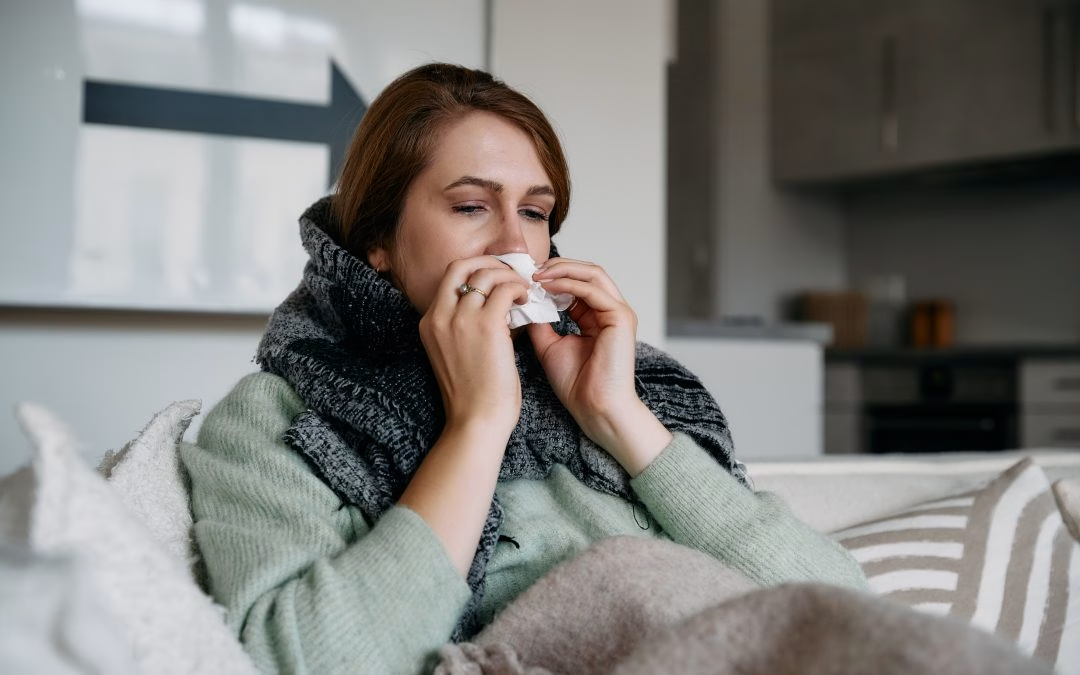by | Mar 13, 2024 | Family Health

Signs of Asthma in Children
Walking outside and taking a deep breath of fresh spring air as you explore the Greenway can bring joy and a vibrant feeling after the cold and dreary winter months. For some, though, the very idea has them reaching for their inhaler, and yet others find indoor air to be suffocating. Having trouble breathing can be a sign of asthma and if your child feels better indoors rather than out, or outdoors rather than in, they might be dealing with asthma.
So, what is asthma, and what causes it?
Understanding Asthma
Asthma is a disease that occurs when a person’s airways become sensitive to something in the indoor or outdoor environment. When exposed to the trigger the linings of the airways then swell and become inflamed in response to the trigger, the surrounding muscles tighten, and the airways begin to produce mucus that is thicker than normal. All these things cause the airways to narrow, making it difficult for the lungs to take in or expel air. Asthma is a chronic lung disease and affects people of all ages. It is steadily increasing and is the leading form of chronic illness among children. Asthma’s root cause is unknown.
Asthma triggers can take the form of pollen, dust, chemical fumes, cockroach waste, mold, pet dander, changing weather, dust mites, exercise, smoke, or even respiratory illnesses such as the flu.
Common Asthma Symptoms
- Chest tightness
- Coughing, especially at night or early morning
- Breathing problems, such as shortness of breath, rapid breathing, or gasping for air
- Low energy
- Dark circles under the eyes
- Being irritable
- Wheezing, which causes a whistling sound on exhale
- Frequent chest colds
- Trouble eating or sucking (in infants)
Asthma tends to run in families and children can have infrequent symptoms that are confused with respiratory infections. Asthma can be difficult to diagnose particularly in younger children, making understanding the symptoms and individual risks crucial.
Asthma risk factors:
- Between 5 to 17 years old (symptoms may start sooner)
- Family members with asthma
- Food or nasal allergies, eczema
- Tobacco smoke
- Air pollution
- Underlying health conditions, i.e., overweight
Most children have their first asthma symptom by age 5 and some have asthma that is brought on by exercise or even chilly air. If asthma is suspected, seek medical advice as uncontrolled asthma can lead to hospitalization. Asthma is responsible for over 900,000 emergency room visits and 94,000 hospitalizations a year. Healthcare professionals recommend a yearly flu shot for those with asthma.
Asthma Testing
Asthma is diagnosed through a physical exam and breathing test. If a family member has allergies or asthma, the odds of your child having them increase. An allergist may be involved in administering allergy tests to determine if your child has allergies that are severe enough to trigger asthma. An allergist can help determine if a child younger than 5 years old has asthma, especially when they are unable to complete airflow tests. Sometimes, if a doctor suspects asthma, they may prescribe asthma medication to see if it has any effect on the symptoms.
Can Children With Asthma Play Sports?
Yes! Physical activity can help children who have asthma maintain a healthy weight and stay fit, while also helping to improve lung capacity. What triggers your child’s symptoms is important to know and triggers are as individual as the child.
Some asthma symptoms are caused by non-allergic triggers such as air pollution, smoke, certain medications, respiratory illness, or even frigid air. Exercise-induced asthma can be triggered by physical exercise, especially when the air is dry. Understanding these factors can play a role in determining which sports are safest for your child from a lung health perspective.
If your child is allergic to air pollution, then a sport that takes place indoors might be the best option for them. Or, if chilly air is a trigger, then a summer sport might be the best option over an outdoor winter one.
Regardless of which activity or sport your child chooses, AFC Urgent Care Cleveland can help advise you and provide them with medications that will help with optimal lung function enabling them to continue to do the things they enjoy.


